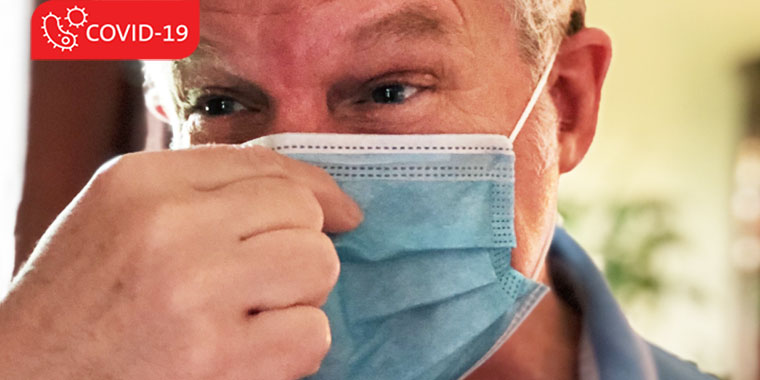A Face Mask Surprise: Your Bad Breath

Answer a few questions and we'll provide you with a list of primary care providers that best fit your needs.
Now that you’re wearing a face mask, are you frequently assaulted by an unpleasant odor? Surprise! It’s your bad breath. Although you may not have noticed it in the past, now that your breath is smacking you in the face, the smell is hard to ignore.
Zachary Townsend, DO, Beavercreek Family Medicine says halitosis (the technical term for bad breath) often is due to decreased production of saliva.
“During the day we wash away bacteria in our mouth every time we drink or eat or brush our teeth,” he says. “But we don’t do that when we sleep, so the bacteria in our mouth multiply and we wake up with morning breath.” What you eat also can cause bad breath. Onion and garlic are frequent culprits, says Dr. Townsend. Postnasal drip and allergies are other common causes.
How Can I Get Rid Of Bad Breath?
A solid oral hygiene routine can keep your breath free of foul odors:
- Brush your teeth at least twice a day.
- Brush your tongue to dislodge bacteria that settle and thrive in the crevices. “The back of the tongue, called the posterior one-third, is where most bacteria thrive,” says Dr. Townsend.
- Gargle with antibacterial mouthwash. “You want mouthwash that contains cetylpyridinium chloride or chlorhexidine, which kill bacteria. And you want to use it just before bed so you won’t have bacteria growing inside your mouth all night,” Dr. Townsend recommends.
- Floss to remove food between teeth. “Normal bacteria in your mouth will have less material to grow on if you floss daily,” Dr. Townsend explains.
Why Don’t We Notice Our Own Halitosis?
If you have bad breath that won’t go away with good oral hygiene, you may become so accustomed to the smell, you don’t even notice it anymore, says Dr. Townsend. Chronic halitosis has many possible causes, including:
- Diseases of the teeth, gum, or tonsils
- Heart disease
- Lung issues
- Smoking Regurgitating food
- Zenker diverticulum: A pocket in your esophagus where food can embed and bacteria grow
- Tonsil stone: A crevice in your tonsils where debris can collect and harden, and bacteria can grow
If you notice bad breath that doesn’t go away with good oral hygiene, contact your primary care physician, Dr. Townsend recommends. “And be sure to visit a dentist for a thorough cleaning and evaluation at least once a year; twice a year is ideal.”
Answer a few questions and we'll provide you with a list of primary care providers that best fit your needs.
Source: Zachary Townsend, DO, Beavercreek Family Medicine





